How Can You Use Essential Oils
Essential oils have gained popularity for their various benefits, from relieving stress and anxiety to boosting the immune system. But what exactly are essential oils, how are they made, and how can you use them?
We will explore the different ways to use essential oils, their benefits, safety precautions, and popular oils like lavender and peppermint. Whether you’re looking to improve your mood, sleep better, or treat acne, essential oils may be just what you need.
Key Takeaways:
What Are Essential Oils?
Essential oils are natural aromatic compounds extracted from plants. These oils capture the plant’s essence and scent, giving them unique properties and benefits.
These oils are extracted through various methods such as steam distillation, cold pressing, or solvent extraction, depending on the plant type and oils required. For instance, lavender oil is commonly extracted through steam distillation from the flowers, while peppermint oil is obtained by steam distillation of the leaves. Eucalyptus oil, on the other hand, is usually extracted through a process called solvent extraction, which involves using a solvent to separate the oil from the plant material.
How Are Essential Oils Made?
Essential oils are typically made through a process of distillation or cold pressing of various plant parts like flowers, leaves, or roots. This extraction method retains the potent aromatic compounds found in plants.
One of the most common distillation methods involves using steam to extract the essential oils from the plant material. The steam carries the aromatic molecules through a cooling system, where they condense into a liquid form. Cold pressing, on the other hand, is often used for obtaining citrus oils like lemon oil, where the oils are mechanically squeezed from the rinds of the fruits. It is crucial to preserve the natural properties of the plants during extraction to ensure the therapeutic benefits of tea tree oil and other essential oils.
What Are the Different Ways to Use Essential Oils?
Essential oils can be used in various ways, including aromatherapy, topical application, and ingestion, each method offering distinct benefits and applications.
Regarding skincare, essential oils are highly valued for their natural properties that can help address different skin concerns. From acne-prone skin to aging prevention, these potent oils can be tailored to suit individual needs.
The therapeutic scents of essential oils utilized in aromatherapy can have a calming effect on the mind and body, promoting relaxation and stress relief. Incorporating essential oils into your daily routine can serve as a holistic approach to enhancing overall well-being, providing an alternative medicine option for those seeking natural remedies.
Aromatherapy
Aromatherapy is a holistic healing treatment that uses natural plant extracts to promote health and well-being. It finds its roots in ancient practices like Ayurveda and continues to be a popular alternative medicine approach.
Essential oils are core elements in aromatherapy, each with unique properties influencing the mind and body. Historically, aromatic plants were used for rituals and medicinal purposes across various cultures. In modern times, aromatherapy has been integrated into mainstream healthcare as part of an integrative approach to wellness. Research shows that certain scents can positively affect cognitive function, helping to reduce stress and improve mood.
Topical Application
Topical application involves directly applying essential oils to the skin, often diluted with carrier oils to prevent skin sensitivity. This method is commonly used for skincare, massage, and targeted relief.
One of the key benefits of topical application is that the oils can penetrate the skin and enter the bloodstream, offering various therapeutic effects. Whether you’re looking to soothe a headache, alleviate muscle tension, or even reduce the appearance of scars, topical application can be a powerful method for harnessing the benefits of essential oils.
It is crucial to consider precautions when using essential oils topically. Skin sensitivity varies from person to person, so it’s essential to perform a patch test before widespread application to avoid adverse reactions. Some oils, especially citrus ones, can increase photosensitivity, making the skin more prone to sunburn. Always dilute essential oils properly and avoid applying them to areas of broken or damaged skin to prevent irritation.
Ingestion
Ingesting essential oils involves consuming them orally, either by adding to food or drinks. This method can impact metabolism and overall health, but caution and proper guidance are essential to prevent adverse effects.
While some proponents claim that ingesting essential oils can provide various health benefits, including iron intake regulation and immune system support, healthcare professionals typically advise against this practice.
One major concern is the potential toxicity of essential oils oils when taken internally. Essential oils are highly concentrated and can cause irritation or even damage to internal organs when not properly diluted.
The body metabolizes ingested oils differently than when applied topically or diffused, leading to potential complications. Explore essential oil crafts for alternative uses.
Before considering ingestion, it is crucial to consult with a qualified healthcare provider to assess individual health conditions and ensure safe consumption practices.
What Are the Benefits of Using Essential Oils?
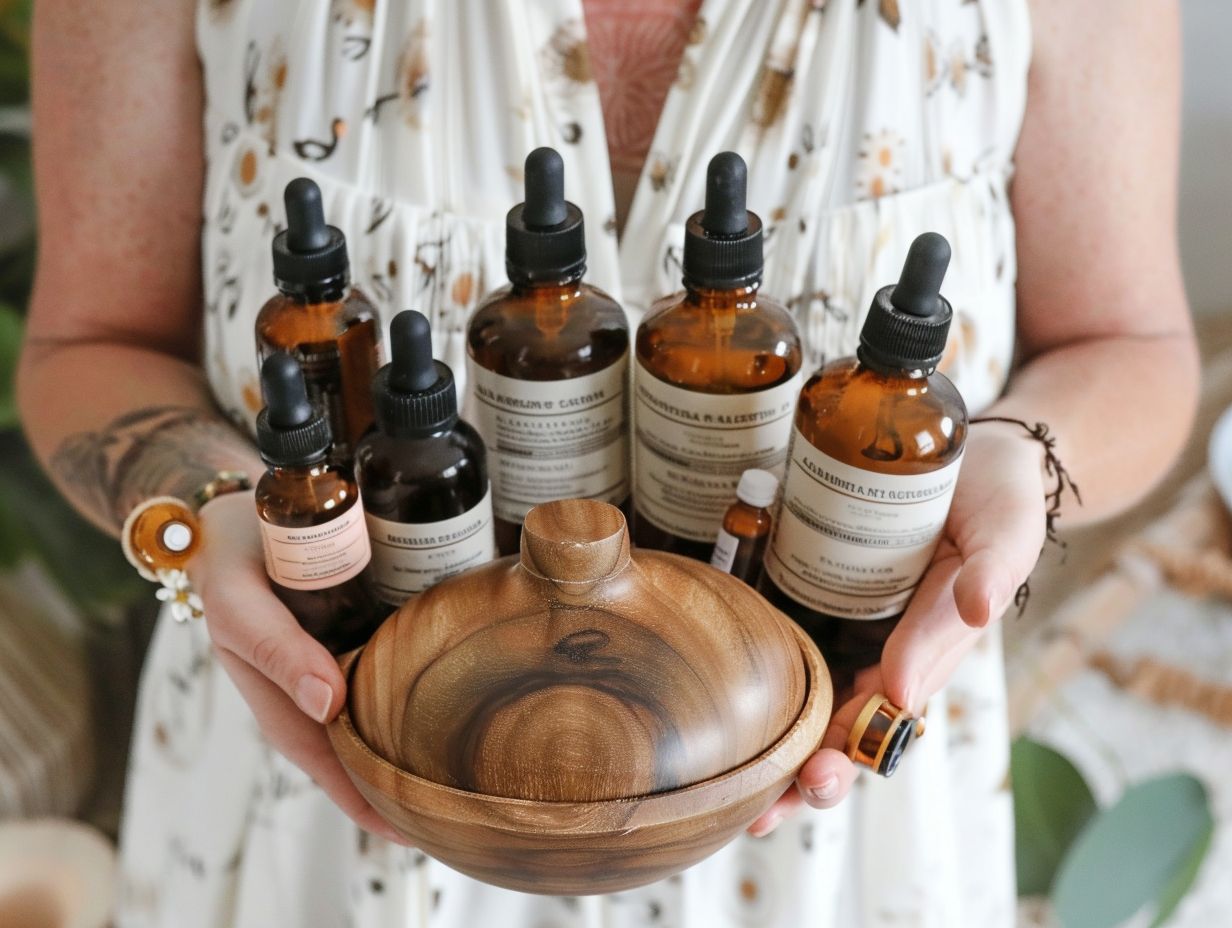
The usage of essential oils can play a crucial role in providing relief from chronic pain and migraines, promoting relaxation and tranquility, aiding in digestion and respiratory functions, as well as acting as natural agents for skin care and wound healing.
Some types of essential oils have been researched for their potential in improving cognitive function, which has implications in conditions such as Alzheimer’s disease. The health benefits of essential oils extend beyond physical well-being to encompass mental and emotional wellness, making them a versatile and holistic approach to overall health.
Relieves Stress and Anxiety
Essential oils are known for their calming properties that help alleviate stress and anxiety. Aromatherapy with oils like lavender and bergamot can promote relaxation and emotional balance.
Studies have shown that inhaling these essential oils can have a positive impact on cognitive function and mood regulation. Research indicates that the compounds in lavender oil, such as linalool, may interact with neurotransmitter receptors in the brain, contributing to its stress-relieving effects.
Additionally, diffusing essential oils using a diffuser can create a calming atmosphere in your living spaces. The gentle scent wafting through the air can help reduce feelings of tension and promote a sense of peace and well-being.
Improves Sleep Quality
Essential oils, particularly lavender, are praised for their ability to improve sleep quality. The soothing aroma of lavender oil can promote relaxation and enhance the sleep experience.
Studies have shown that inhaling the scent of lavender oil can have a calming effect on the nervous system, helping to reduce anxiety and stress levels before bedtime. This, in turn, can lead to a more restful and rejuvenating sleep. The use of lavender oil has been linked to improved metabolism and cognitive function, making it a versatile choice for those looking to optimize their overall well-being. Incorporating lavender oil into your nightly routine may result in a more peaceful and undisturbed night’s rest.
Boosts Immune System
Eucalyptus oil is renowned for its immune-boosting properties, helping to combat colds and respiratory issues. Using this essential oil can support the body’s natural defenses and promote overall wellness.
Regarding essential oils for immune health, eucalyptus stands out for its ability to clear congestion, especially in the sinuses, and ease breathing difficulties. Rich in antioxidants, eucalyptus oil assists in neutralizing harmful free radicals that can weaken the immune system. Regular use of eucalyptus oil not only aids in fighting infections but also enhances immune responses, making it a valuable addition to your wellness routine.
Reduces Inflammation and Pain
Peppermint oil is known for its analgesic and anti-inflammatory properties, making it a popular choice for reducing pain and inflammation. This essential oil can provide relief for headaches and muscle aches.
The menthol component in peppermint oil acts as a natural pain reliever by numbing the affected area and reducing discomfort. Its anti-inflammatory properties help in decreasing swelling and redness. Peppermint oil can be utilized for various ailments beyond headaches and muscle aches, such as Alzheimer’s disease, where it may aid in cognitive function and memory retention. When applying peppermint oil topically, it is crucial to dilute it with a carrier oil to prevent skin sensitivity reactions.
Enhances Mood and Energy
Lemon oil is a popular choice for enhancing mood and boosting energy levels. The invigorating citrus scent of lemon oil can uplift spirits and promote mental clarity and focus.
When inhaled, the refreshing aroma of lemon oil can trigger positive responses in the brain, helping to reduce feelings of stress and anxiety. Not only does lemon oil have an uplifting effect on mood, but it also possesses antibacterial properties, making it a great choice for purifying the air in your living space.
To take advantage of these benefits, consider using a diffuser to disperse the aroma throughout a room, creating a calming and refreshing environment. It’s important to note that for individuals with skin sensitivity, diluting lemon oil with a carrier oil is advisable if applying topically.
What Are the Safety Precautions When Using Essential Oils?
While essential oils offer numerous benefits, it’s crucial to take safety precautions to avoid adverse effects. Diluting oils, patch testing, and sun exposure avoidance are essential practices to ensure safe usage.
Proper dilution ratios are key to prevent skin irritation or sensitization, with a general rule of thumb being 1-2% for body and facial applications. Patch testing involves applying a diluted oil on a small area of skin to check for any adverse reactions before applying it more extensively. It’s also crucial to be aware of potential side effects such as allergic reactions or respiratory issues, and always consult with a healthcare professional, especially if you have existing health conditions.
Dilute Oils Before Use
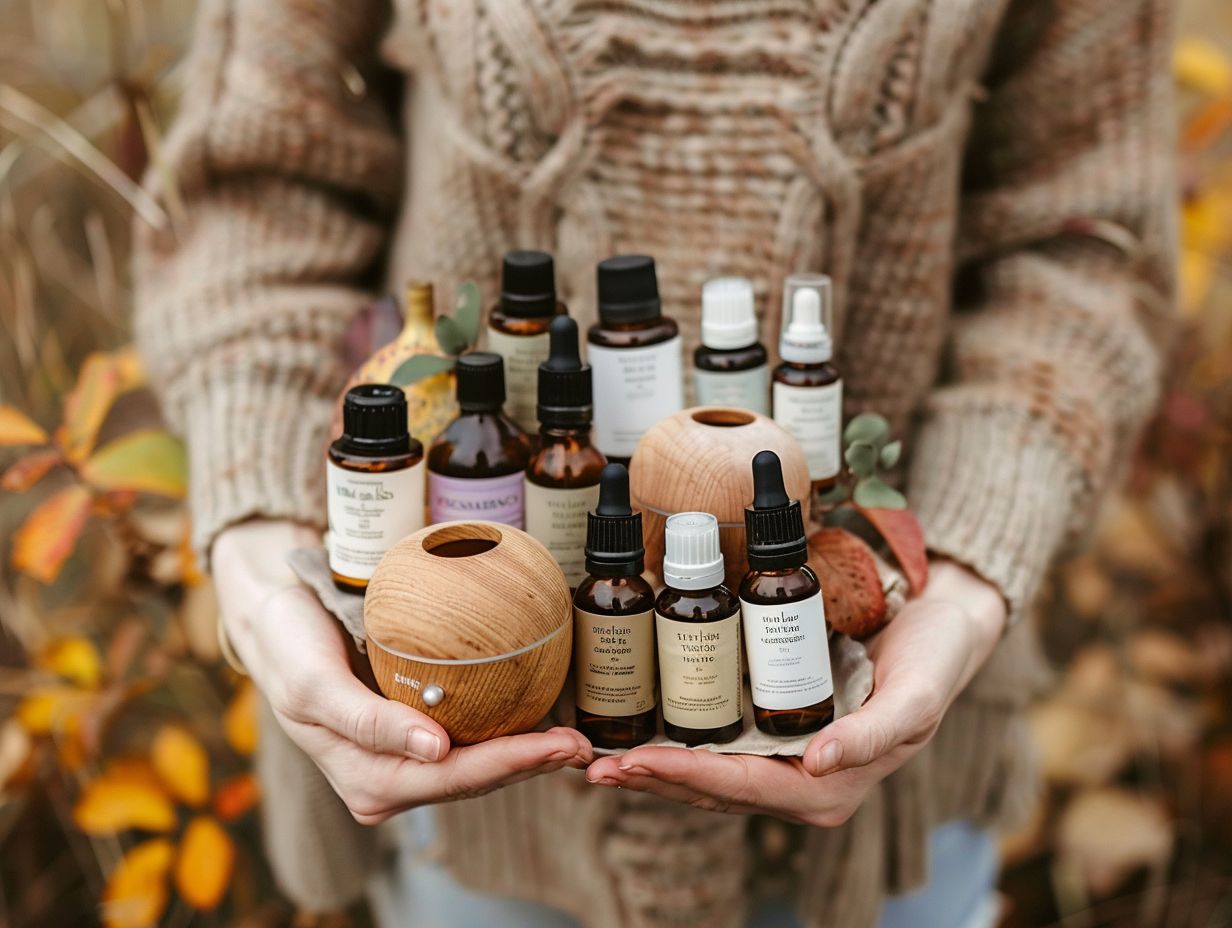
Undiluted essential oils can be extremely potent and may cause skin irritation, redness, or even burns when applied directly. To avoid such reactions, it is recommended to dilute essential oils with carrier oils such as coconut, almond, or jojoba oil. A common dilution ratio is 2-3% essential oil to carrier oil for general use, which equates to roughly 12-15 drops of essential oil per ounce of carrier oil. For sensitive skin, lower dilution ratios of 1% or less are advised.
- When using essential oils for specific purposes like sunburn relief, insect repellent, or skincare, it’s essential to follow precise dilution guidelines to achieve the desired results without any adverse effects.
- For example, a safe dilution for sunburn relief could be a mixture of lavender essential oil (soothing properties) and aloe vera gel, creating a cooling and healing blend that nourishes the skin without causing further irritation.
Diluting essential oils not only reduces the risk of skin sensitivity but also helps maximize their benefits, making them safe and suitable for various applications.
Perform a Patch Test
Conducting a patch test before widespread application of essential oils helps identify potential allergic reactions or skin sensitivities. This simple step can prevent adverse skin issues and ensure safe usage.
Regarding essential oils, a patch test involves applying a small amount of the oil diluted in a carrier oil to a discreet area of the skin, such as the inner forearm.
After application, it is crucial to wait for 24-48 hours to observe any signs of irritation, redness, itchiness, or swelling.
This precautionary measure is particularly important for individuals with a history of skin sensitivities or allergies.
Even sunburn or using essential oils as an insect repellent warrants a patch test to prevent exacerbating skin conditions.
Avoid Sun Exposure
Certain essential oils, when used topically, can increase skin sensitivity to sunlight, leading to sunburn or skin damage. It is important to avoid direct sun exposure after applying photosensitive oils.
Examples of common photosensitive oils include bergamot, lemon, lime, and grapefruit. These oils contain compounds that can make your skin more prone to UV damage when exposed to sunlight.
To protect your skin, it is recommended to dilute photosensitive oils properly before applying them to the skin. Mixing them with a carrier oil can help reduce the risk of skin reactions. Learn more about what to do with old essential oils.
Consider applying photosensitive oils in the evening or before going to bed to minimize sun exposure. Wearing protective clothing and using sunscreen with a high SPF is crucial when using these oils during the day.
Keep Away from Children and Pets
It’s vital to store essential oils out of reach of children and pets to prevent accidental ingestion or exposure. Safely securing oils ensures a hazard-free environment for the entire family.
When storing essential oils, consider using lockable cabinets or high shelves to prevent easy access. Always keep essential oils in their original, child-resistant containers. It’s wise to label each bottle clearly to avoid any mix-ups.
- Remember, diluted ingredients are also potent and should be stored with the same caution. If possible, keep these diluted mixtures in separate, labeled containers away from direct sunlight and heat sources.
Ensuring health benefits from essential oils involves responsible handling. Educate children about the dangers of ingestion or skin contact with these concentrated substances, and teach them to always ask an adult for help with oils.
What Are Some Popular Essential Oils and Their Uses?
Several essential oils like lavender, tea tree oil, peppermint oil, eucalyptus oil, and lemon oil are popular for their diverse uses and benefits, ranging from relaxation and skincare to headache relief and cold remedies.
Among these,
- lavender is well-known for its calming properties, often used in aromatherapy to promote relaxation and alleviate stress.
- On the other hand, peppermint oil is commonly used for its ability to relieve headaches and migraines when applied topically.
- For respiratory issues, eucalyptus oil stands out with its decongestant properties, making it a popular choice for cold relief.
- Additionally, tea tree oil is renowned for its anti-inflammatory and antibacterial attributes, often used in skincare to combat acne and soothe skin irritations, showcasing the integrative approach of essential oils in holistic wellness.
Lavender Oil for Relaxation and Sleep
Lavender oil is renowned for its calming properties, making it ideal for promoting relaxation and improving sleep quality. This versatile oil is widely used in aromatherapy for its soothing effects on the mind and body.
Many individuals turn to lavender oil to ease stress and anxiety due to its proven benefits in reducing cortisol levels, the stress hormone. In Ayurveda, an ancient holistic healing system, lavender oil is valued for its ability to balance the doshas, particularly calming Vata and Pitta imbalances.
Incorporating lavender oil into relaxation techniques like deep breathing or meditation can enhance the overall experience, helping to quiet the mind and induce a state of tranquility. In massage therapy, this fragrant oil is often diluted with a carrier oil and applied to the skin to release tension and promote relaxation. This not only soothes sore muscles but also engages the olfactory senses, creating a multi-sensory experience that aids in essential oils for skin wear.
When used as part of a bedtime routine, such as adding a few drops to a diffuser or pillow, lavender oil can signal to the brain that it’s time to wind down, preparing both the mind and body for a restful night’s sleep.
Peppermint Oil for Headache Relief
Peppermint oil is known for its analgesic properties, providing effective relief from headaches and migraines. This cooling oil can alleviate tension and promote pain relief when applied topically or inhaled.
Its pain-relieving effects stem from the menthol content, which acts as a natural muscle relaxant, soothing tight and sore muscles. When applied to the temples or neck, peppermint oil can help reduce headache intensity and frequency.
Studies have shown that inhaling peppermint oil can also improve concentration and cognitive function, making it a versatile remedy for various ailments.
Tea Tree Oil for Acne Treatment
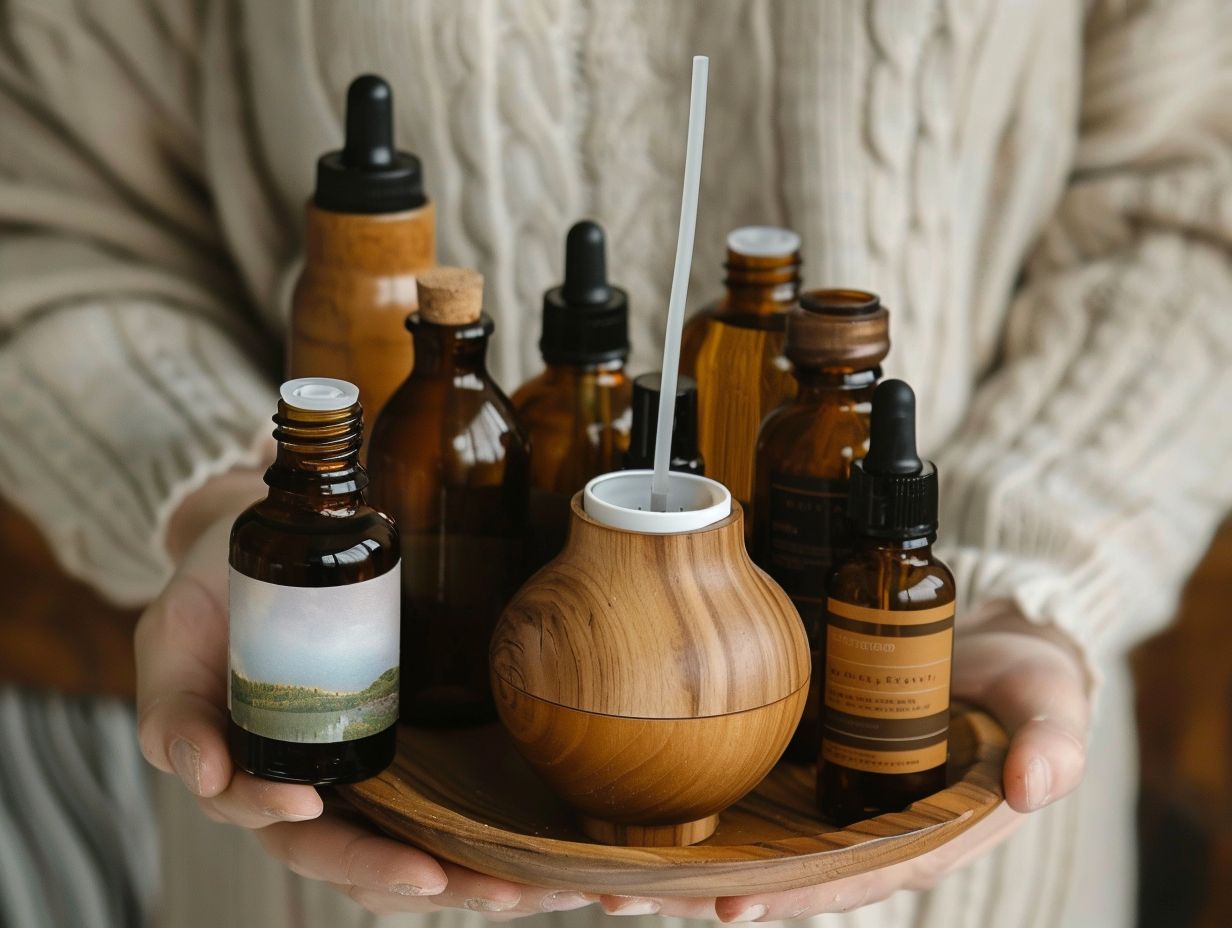
Tea tree oil is a popular choice for acne treatment due to its antimicrobial and anti-inflammatory properties. This essential oil can help reduce acne breakouts, soothe skin inflammation, and promote clearer skin.
One of the key benefits of tea tree oil is its ability to target acne-causing bacteria while also calming redness and swelling in the skin. When applied topically, tea tree oil can help unclog pores and regulate oil production, leading to fewer breakouts and a more balanced complexion. It is essential to dilute tea tree oil with a carrier oil before application, especially for individuals with sensitive skin, as it can cause irritation or allergic reactions if used undiluted. It’s always recommended to do a patch test before full application to ensure compatibility.
Eucalyptus Oil for Cold and Flu Relief
Eucalyptus oil is widely used for cold and flu relief, thanks to its decongestant and expectorant properties. This essential oil can ease respiratory symptoms, clear nasal congestion, and support respiratory health.
It works by opening up the sinuses, allowing easier breathing and reducing the severity of coughs. When inhaled, eucalyptus oil can effectively break down mucus, making it easier to expel from the body. The oil’s antimicrobial properties can help combat bacteria and viruses that cause respiratory infections.
Lemon Oil for Mood and Energy Boost
Lemon oil is known for its uplifting aroma that can enhance mood and boost energy levels. This citrus-scented oil is a popular choice for promoting mental clarity, focus, and emotional well-being.
Its refreshing scent not only invigorates the senses but also acts as a natural stress reliever, making it a versatile essential oil to have in your wellness toolkit. When diffused, lemon oil can create a bright and cheerful ambiance, ideal for combating feelings of fatigue or low spirits. Its crisp fragrance can help improve cognitive function and concentration, making it a valuable aid during study or work sessions.
Frequently Asked Questions
How Can You Use Essential Oils?
There are multiple ways to use essential oils, including:
- Diffusing: adding a few drops of essential oil to a diffuser to disperse the scent into the air.
- Topically: applying the oil directly onto the skin, often diluted with a carrier oil.
- Ingestion: consuming the oil orally, usually in small amounts and under the guidance of a healthcare professional.
Can Essential Oils Be Used for Aromatherapy?
Yes, essential oils are commonly used in aromatherapy due to their strong scents and potential therapeutic benefits.
What Are Some Popular Essential Oils?
Some popular essential oils include lavender, peppermint, tea tree, eucalyptus, and lemon.
Are Essential Oils Safe to Use?
While essential oils have many potential benefits, it is important to use them safely. Always dilute oils before applying topically and do not ingest them without proper guidance. Also, be aware of potential allergies and sensitivities.
Can Essential Oils Help with Health Issues?
Some essential oils have been studied for their potential benefits in managing certain health issues, such as headache, nausea, and anxiety. However, more research is needed in this area.
How Can You Choose the Right Essential Oil for You?
When choosing an essential oil, consider your personal preferences and any potential health concerns. It is also important to research the quality and purity of the oil and purchase from a reputable source.

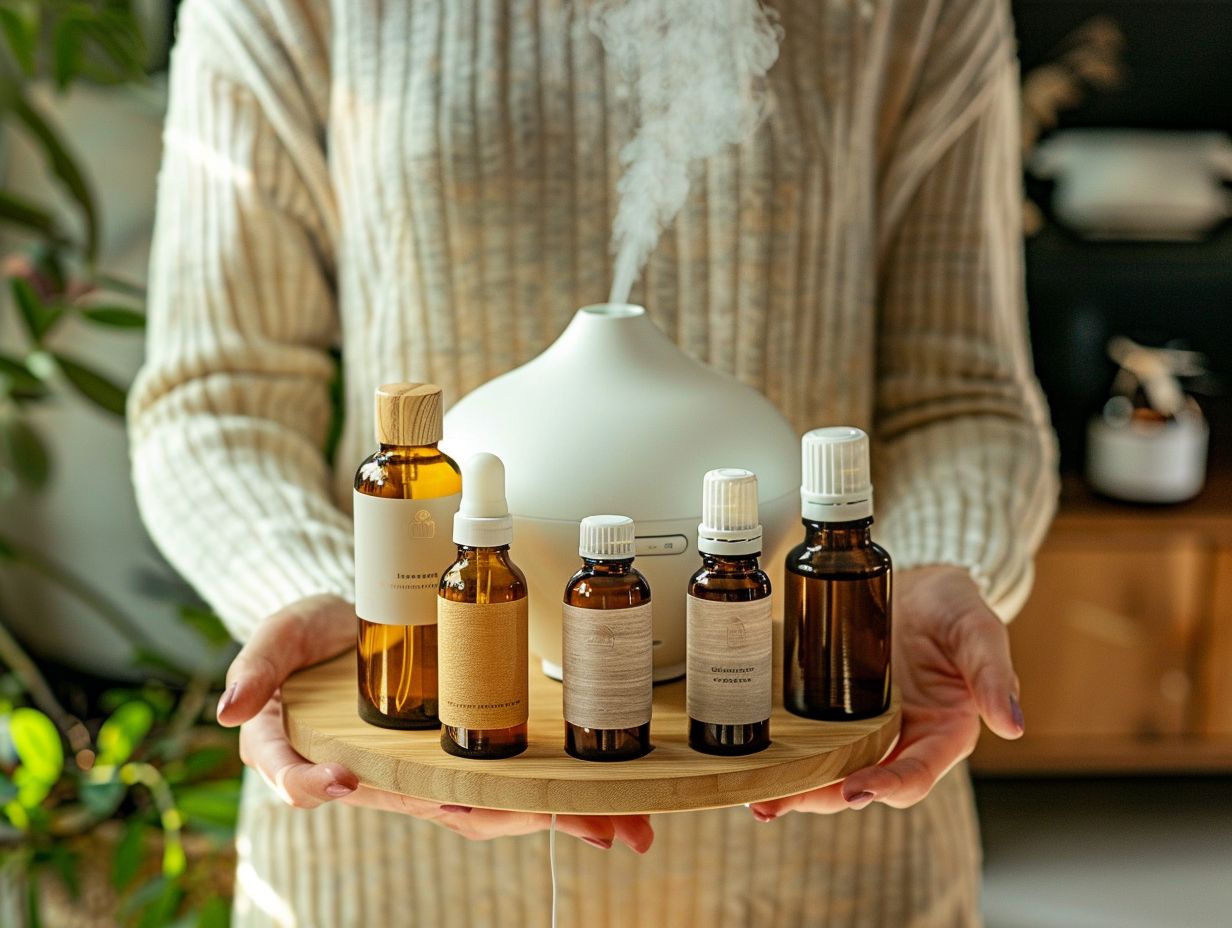

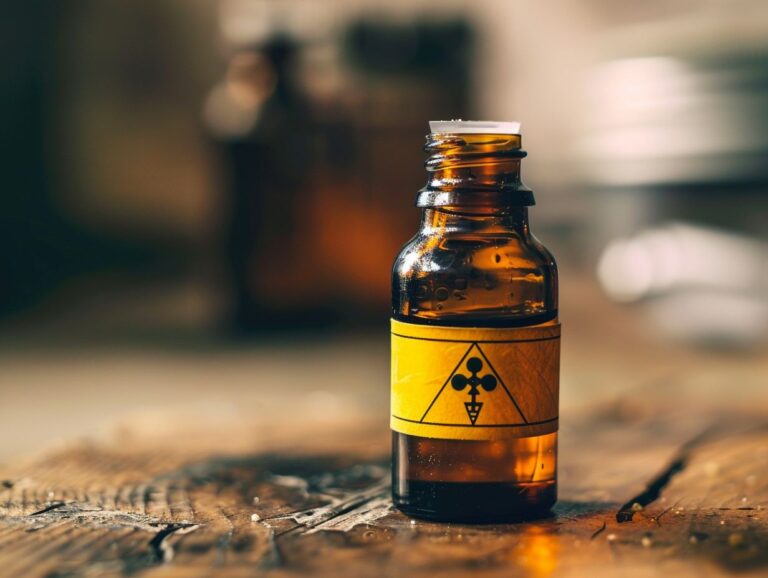
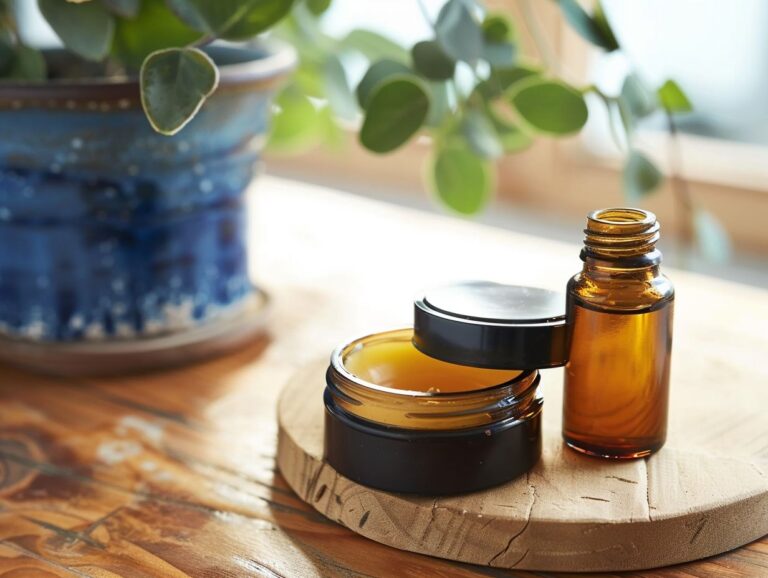
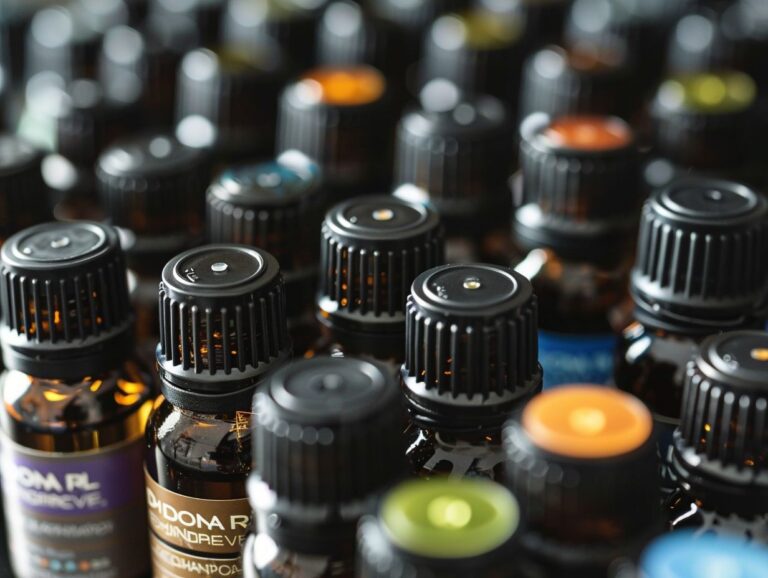
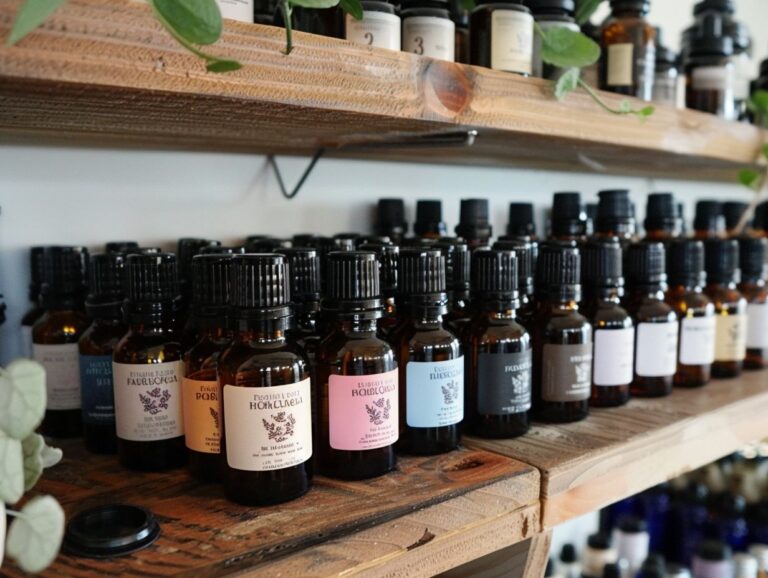
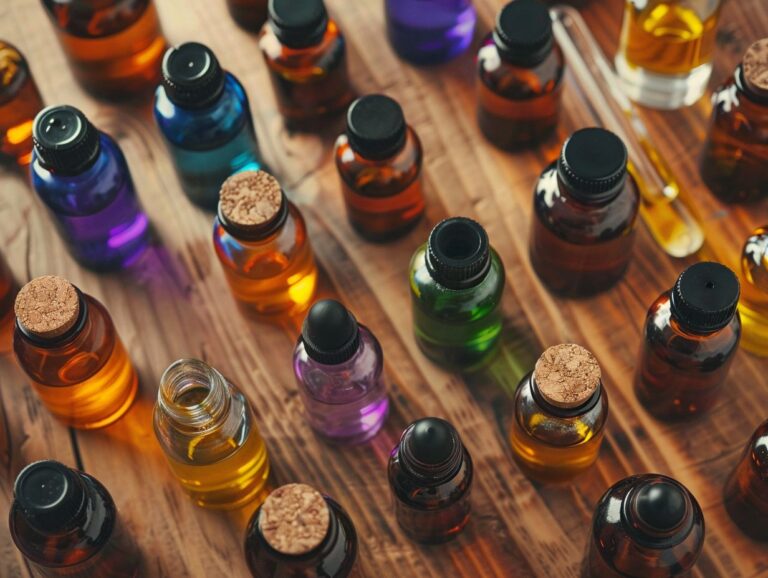
13 Comments